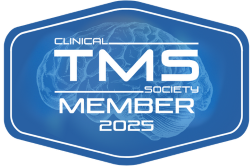FAQs ABOUT KETAMINE INFUSIONS

GET ANSWERS TO COMMON QUESTIONS ABOUT KETAMINE INFUSIONS
Many people have questions about ketamine infusions and whether they are a candidate. Here you’ll find answers to the most common questions we hear about ketamine therapy. If your questions are not answered here, please reach out to Bluewater Psychiatry.
Are ketamine infusions safe?
It’s not uncommon to have questions about the safety of ketamine infusions. The short answer is yes, ketamine is safe. To elaborate, ketamine has been in use since the 1970s, when it was approved by the FDA as an anesthetic and analgesic medication. Ketamine is considered an essential medication by the World Health Organization, and is still used regularly for acute pain management in emergency situations. More recently—in the late 1990s—the antidepressant benefits of ketamine were discovered. Since then, all research has indicated that ketamine for depression is very safe, with very few side effects. Visit our Resources page for more information about ketamine research.
How successful is ketamine treatment?
Do I need a referral for both in-office and at-home treatment?
What different disorders is ketamine therapy used to treat?
How should I prepare for treatment sessions?
How does a typical treatment session work?
Any side effects you may be experiencing from your infusion generally wear off after two hours. However, we ask that you please refrain from driving or operating heavy machinery for 24-hours post-infusion. If you are receiving your treatment in-office, please arrive at your appointment with a friend or family member who can drive you home afterward.
How long do the benefits of a ketamine session last?
Is ketamine an addictive substance?
Should I stop using other medications and treatments once I start ketamine infusions?
Request a Free Consultation
Are you a candidate for ketamine infusions or psychiatric services? Request a free evaluation with Dr. Randy Freeman and find out how we can help you achieve your mental, emotional, and behavioral goals.
Office Hours
Monday: 9am-5pm
Tuesday: 9am-5pm
Wednesday: 9am-8pm
Thursday: 9am-5pm

A MEMBER OF ZENCARE RHODE ISLAND


